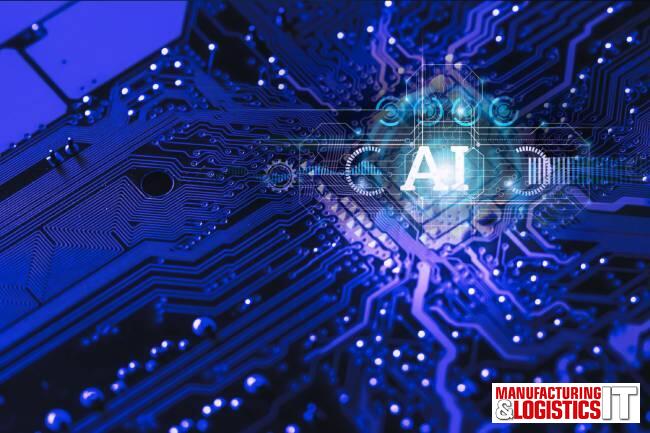In an era where technology and security intertwine, a groundbreaking report shines a light on the evolving landscape of cybersecurity. The findings reflect how artificial intelligence (AI) has emerged at the forefront of concerns for IT and security leaders, reshaping the way we approach cybersecurity in 2025.
AI and Cybersecurity: A Shifting Landscape
Recent data from a comprehensive survey encompassing over 1,200 IT and cybersecurity decision-makers across 15 countries reveals a significant transition in the realm of cybersecurity risks. Conducted by a prominent analytics firm, the report highlights a striking trend: AI and large language models (LLMs) have dethroned ransomware, becoming the primary focus of concern.
This shift isn’t merely anecdotal; 29% of security leaders now cite AI, alongside privacy issues, as their leading concern. This marks a notable rise from previous years, showcasing how the rapid advancement of AI technologies presents new vulnerabilities and challenges. While organizations strive to fortify their defenses through substantial investments in cybersecurity, many still grapple with persistent issues, such as outdated incident response mechanisms and budget constraints.
Key Findings from the 2025 Trends Report
- AI Exceeds Ransomware Concerns: In a revolutionary turn, 29% of respondents prioritize AI-related concerns over traditional threats, including ransomware, malware, and data breaches.
- Increasing Breach Transparency: A staggering 52% of organizations reported experiencing a breach in the past year, an increase from previous data. Transparency regarding these breaches has also improved, with 97% of known breaches being disclosed.
- Widespread Significant Attacks: A considerable 70% of organizations reported facing at least one notable cyberattack last year, predominantly driven by malware and social engineering tactics.
- Professional Ransomware Negotiation: Among companies affected by ransomware, 76% opted to pay, with 90% engaging professional negotiators to help minimize financial losses in over half of these scenarios.
- Endpoint Security Challenges: While 84% of firms implement next-gen endpoint security solutions, only 40% claim to achieve 100% coverage, highlighting potential gaps in overall security visibility.
Voicing Concerns and Rising to the Challenge
Dan Schiappa, the president of Technology and Services at the cybersecurity firm, shares insights on the report, emphasizing the rapid proliferation of AI technologies and the uncertainties that accompany it. The emergence of AI complicates not just the tactics employed by cybercriminals but also the strategies defenders must utilize to protect against them. Ransomware, although overshadowed by AI concerns, remains a significant and costly issue.
Organizations rushing to integrate AI tools into their operations must strike a delicate balance. They must ensure that they don’t overlook fundamental security practices like routine patching and maintaining effective incident response plans. In other words, staying ahead in the cybersecurity game requires not just adopting cutting-edge technology but also reinforcing core security protocols.
Logistics Impact and Future Implications
Projecting how these revelations tie into broader logistics management, it’s clear that the implications are substantial. As logistics relies heavily on digital solutions and data transfer, the interconnectedness of supply chains increases exposure to cybersecurity threats. Smart logistics management needs to incorporate rigorous cybersecurity frameworks to mitigate vulnerabilities associated with AI-powered systems.
Adapting Strategies in a New Era
The ever-evolving nature of cybersecurity demands strategic pivots from organizations. Companies must develop a resilience-based approach to logistics, one that not only ensures efficient operations but also protects sensitive information from potential breaches. This requires a commitment to continuous improvement in cybersecurity measures.
As companies adapt to the landscape shaped by AI, it’s essential to utilize advisory services that help navigate the complexities of logistics vulnerabilities. Partnering with reliable platforms, such as GetTransport.com, promotes an organized transport approach that integrates secure practices in logistics management.
Összefoglalva
The transition of AI as a significant cybersecurity concern marks an important inflection point in how companies approach both security and logistics. The findings from the report underscore the urgent need for enhanced awareness and proactive strategies that focus on the dual threats posed by AI and traditional cyberattacks. Ensuring comprehensive coverage throughout logistics operations becomes paramount to success.
Even with the best analyses and reviews, there’s nothing quite like personal experience. Your decision to streamline logistics through GetTransport.com will yield cost-effective solutions and enhance your operational security. Benefit from the convenience and transparency of a service that meets diverse transportation demands effectively, whether you’re moving cargo across countries or delivering intricate goods. Foglaljon fuvart a GetTransport.com, and stay ahead of the curve in today’s digital age.

 A kiberbiztonság új arca: 2025-ben a mesterséges intelligencia kerül a középpontba">
A kiberbiztonság új arca: 2025-ben a mesterséges intelligencia kerül a középpontba">